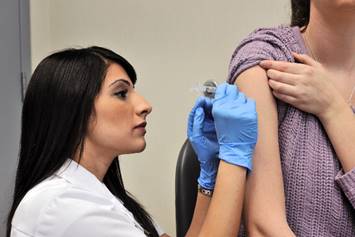The COVID-19 outbreak may be on everyone’s mind, but for most people in British Columbia the flu is causing the most headaches – and fevers and runny noses.
The BC Center for Disease Control says this year’s flu vaccine is proving to be effective against influenza types A and B.
The centre says the vaccine is about 58 percent effective against the mix of influenza A and B viruses circulating this season.
The vaccine effectiveness estimate suggests that about six out of 10 potential cases of flu in non-elderly people might have been prevented by vaccination.
Dr. Danuta Skowronski is the leader of the Influenza and Emerging Respiratory Pathogens Team at the C-D-C in British Columbia.
She says getting a flu shot reduces the risk, especially for people with underlying medical conditions and the elderly.
Dr. Showronski says it also removes pressure on health care facilities – especially at a time of heightened concern about the coronavirus.
The BC Center for Disease Control says that between September 19th and February 22nd, more than 23-thousand samples were tested with over 21-hundred positive results for influenza-A and just under 16 hundred for influenza-B.
In addition to vaccination, the BCCDC says people can reduce their risk and minimize the spread of viruses such as influenza, the novel coronavirus, and the common cold by:
- Washing your hands frequently especially if you’ve been out in public.
- Avoiding touching your face, especially your eyes, mouth, and nose.
- Coughing and sneezing into your elbow. If you use a tissue, make sure to dispose of it properly and wash your hands.
- Staying home if you feel unwell so you don’t pass your infection onto others, especially those who may be at higher risk.
- Staying away from people at higher risk of serious complications from influenza when you feel unwell.






